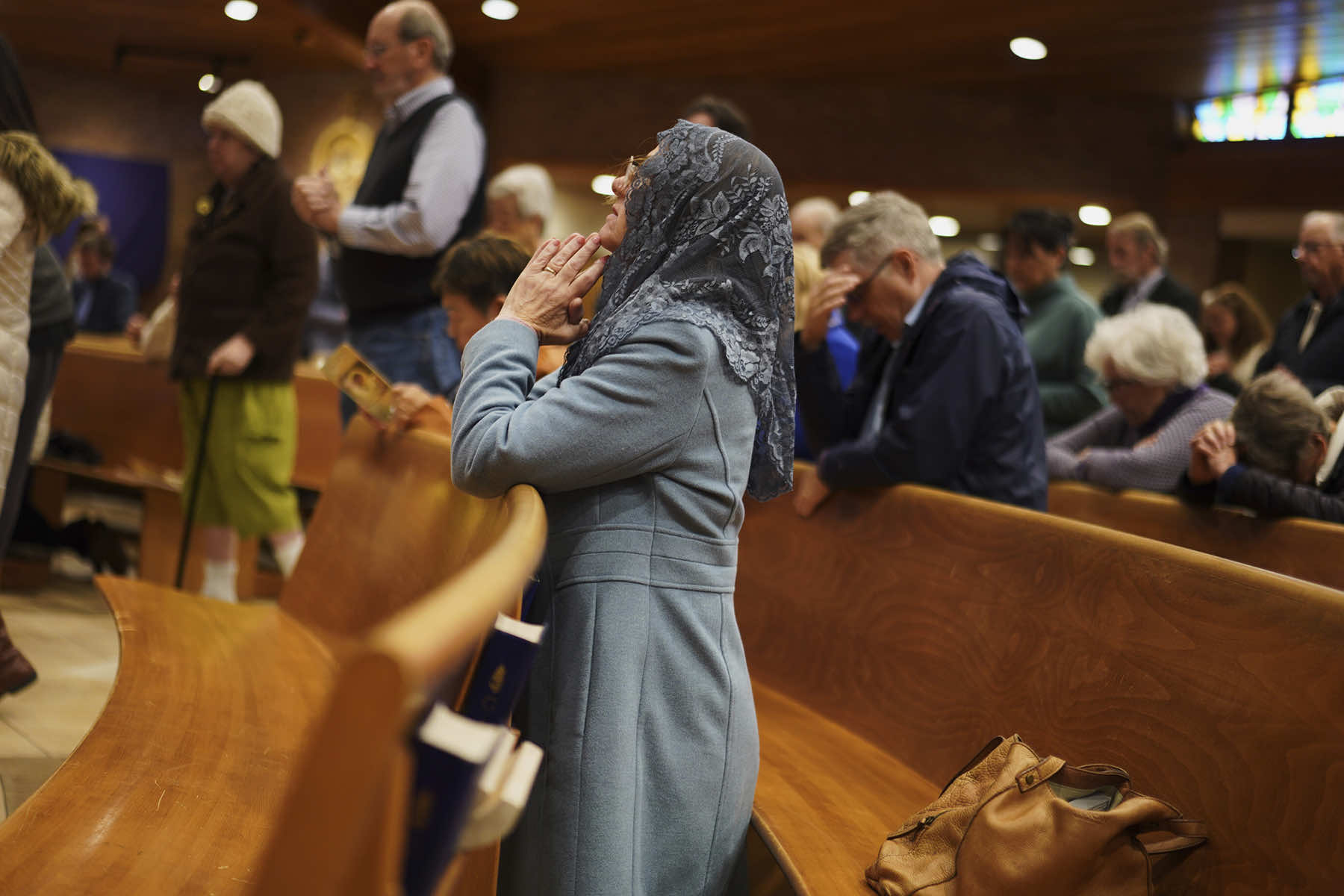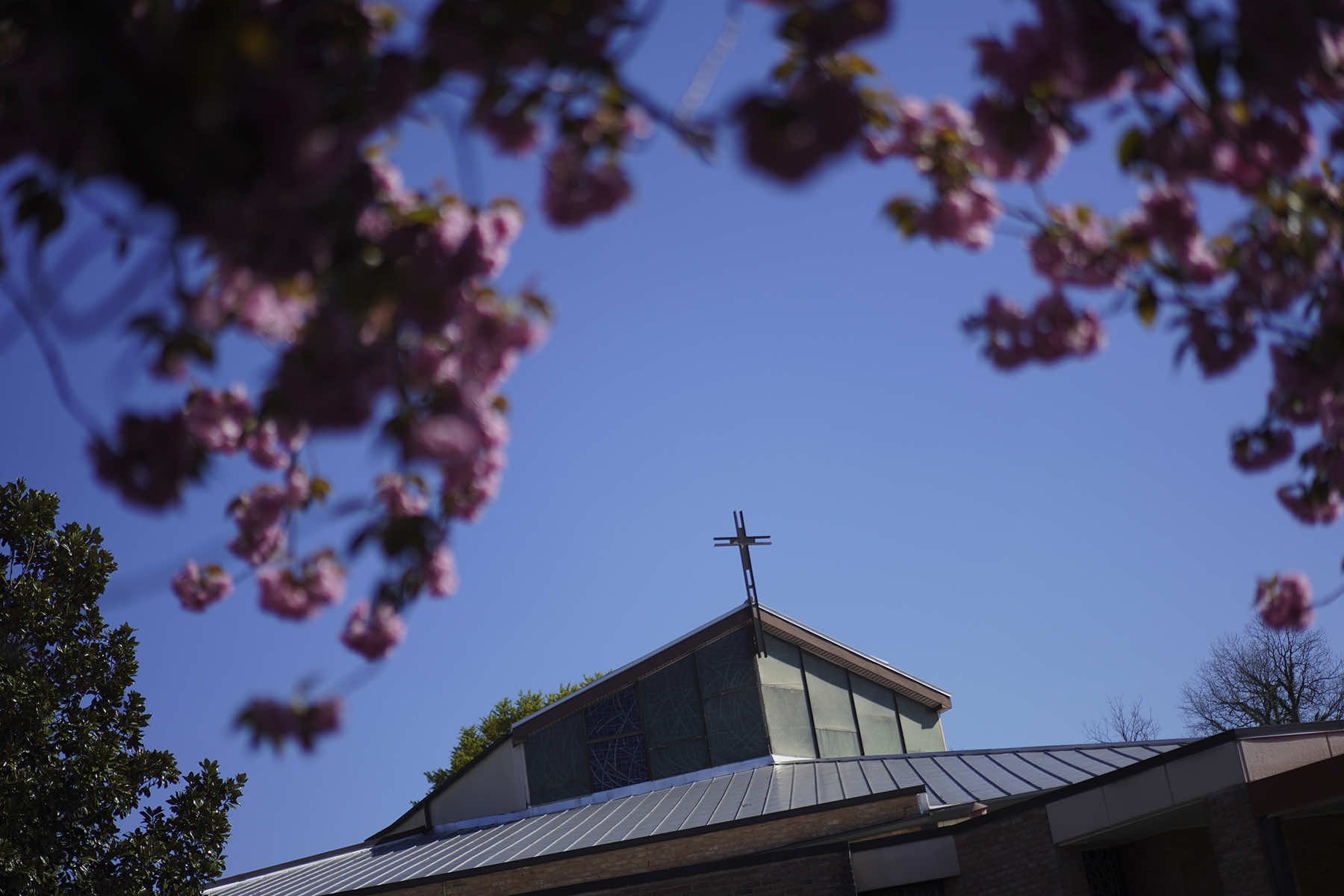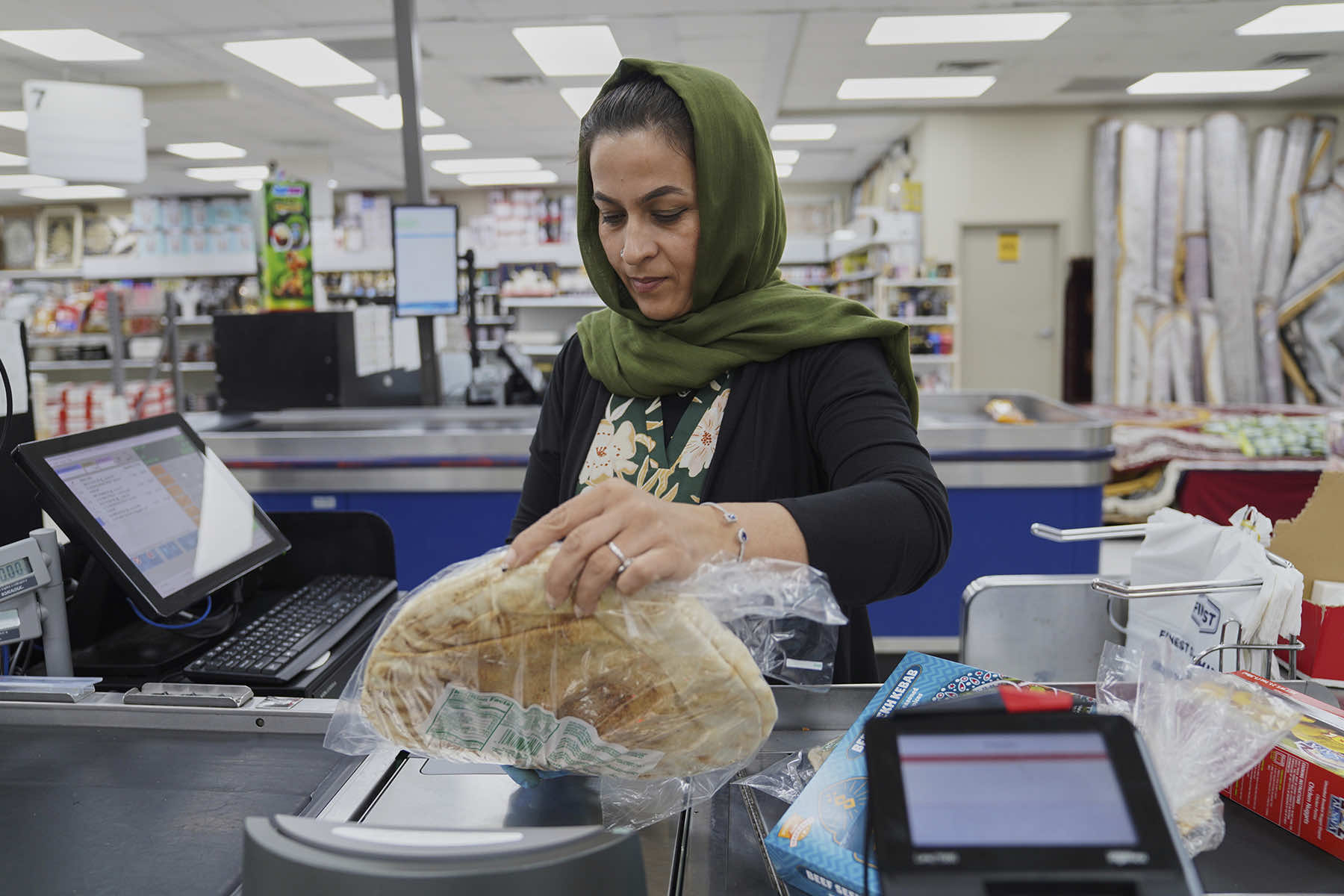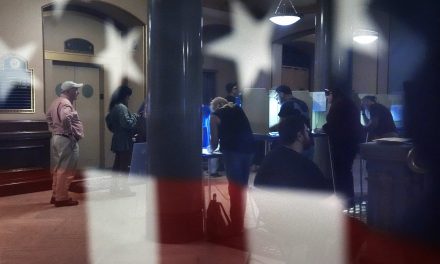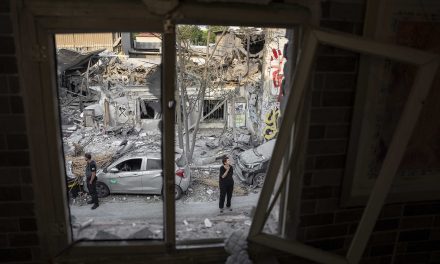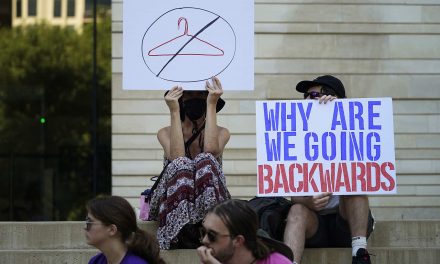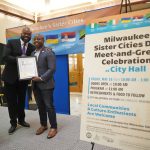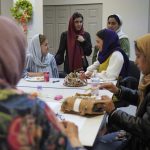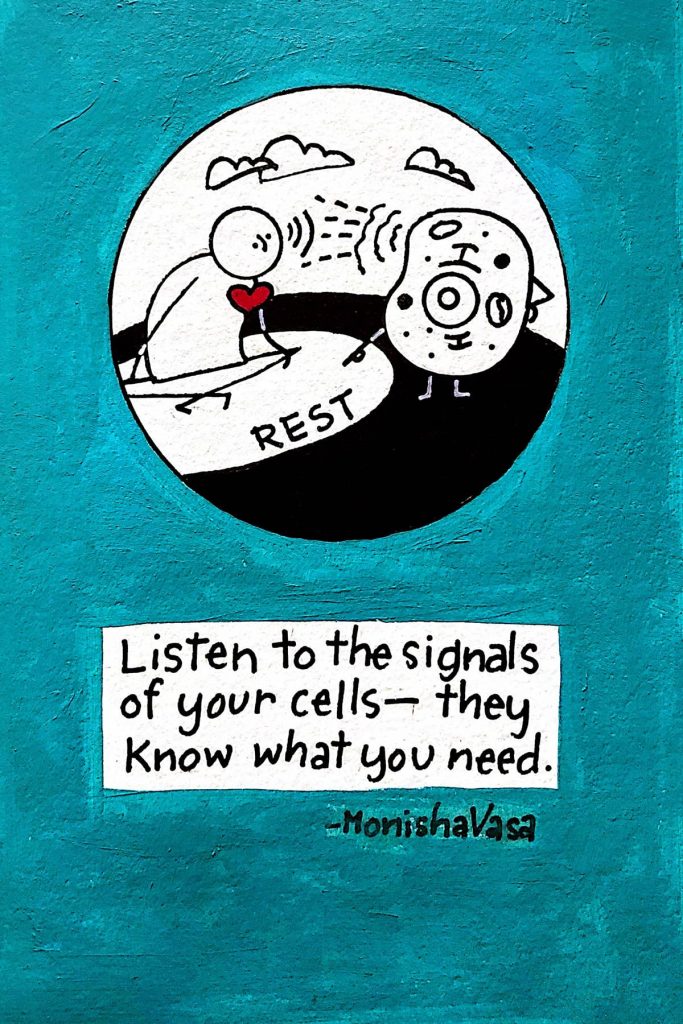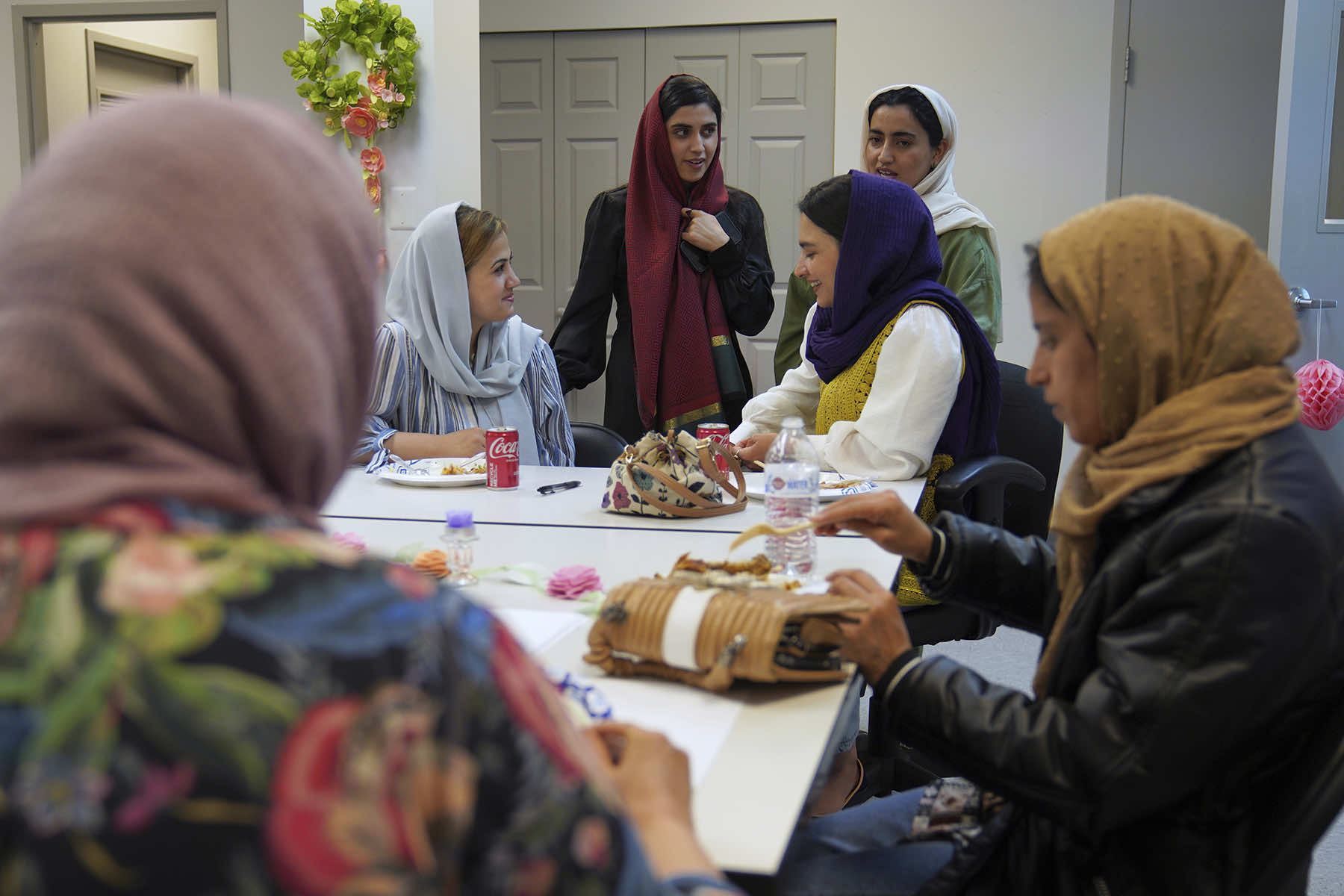
Kat Renfroe was at Mass when she saw a volunteer opportunity in the bulletin. Her Catholic parish was looking for tutors for Afghan youth, newly arrived in the United States.
There was a personal connection for Renfroe. Her husband, now retired from the Marine Corps, had deployed to Afghanistan four times. “He just never talked about any other region the way he did about the people there,” she said.
She signed up to volunteer. “It changed my life,” she said.
That was seven years ago. She and her husband are still close to the young man she tutored, along with his family. And Renfroe has made a career of working with refugees. She now supervises the Fredericksburg migration and refugee services office, part of Catholic Charities of the Diocese of Arlington.
That faith-based work is now in peril. As part of Donald Trump’s immigration crackdown, his administration banned most incoming refugees in January and froze federal funds for the programs.
Across the country, local resettlement agencies like hers have been forced to lay off staff or close their doors. Refugees and other legal migrants have been left in limbo, including Afghans who supported the U.S. in their native country.
In the Midwest, Wisconsin has played a prominent role in welcoming Afghan refugees, particularly in the wake of the U.S. military withdrawal from Kabul in 2021. At Fort McCoy, a military base in western Wisconsin, more than 13,000 Afghans were temporarily housed as part of Operation Allies Welcome.
It was one of the largest such missions in recent history. The site served as a key processing and resettlement hub for families who had worked with or supported U.S. forces.
Community and faith-based organizations across the state also mobilized rapidly. Lutheran Social Services, Catholic Charities, and other local nonprofits coordinated housing, legal aid, and cultural orientation.
In Milwaukee and Madison, mosques partnered with churches and synagogues to collect donations, furnish apartments, and connect Afghan families with job opportunities and language classes.
Muslim-led efforts were often among the first to respond, with organizations like the Islamic Society of Milwaukee, Masjid Al-Huda, and Madison-area mosques mobilizing volunteers, fundraising for emergency housing, and offering culturally specific support such as halal food, prayer accommodations, and translation services.
Afghan American leaders helped coordinate community networks to assist new arrivals with everything from medical care to navigating immigration paperwork, reinforcing a deep tradition of mutual aid that extended across faith lines.
State officials from both parties emphasized Wisconsin’s “moral obligation” to assist Afghans who had risked their lives alongside American troops. That bipartisan tone helped ensure continued support, even as national immigration debates grew more heated. Many Afghan evacuees have since planted roots in Wisconsin cities, enrolled their children in public schools, and begun to rebuild their lives.
While Democratic officials in Wisconsin overwhelmingly offered public support for the state’s effort to welcome Afghan refugees, Republican lawmakers voiced concern about the vetting process and long-term impact.
Despite political divides, local networks — from state agencies to nonprofits and community volunteers — worked to provide housing, education, and legal assistance. Many Afghan evacuees have since planted roots in Wisconsin cities, enrolled their children in public schools, and begun to rebuild their lives.
While Wisconsin Democrats, including Governor Tony Evers, publicly defended the state’s role in welcoming Afghan allies, Republican officials raised objections, questioning the vetting process, warning of security risks, and lamenting the potential costs to state taxpayers.
These same officials, however, remained silent as the United States appropriated over $2.3 trillion for the war in Afghanistan, a conflict that spanned two decades and was largely financed through deficit spending.
Refugee support on the ground was largely led by nonprofit organizations, faith groups, and local volunteers. Many Afghan evacuees have since planted roots in Wisconsin cities, enrolled their children in public schools, and begun to rebuild their lives without direct backing from state Republican leadership.
For other states, in places like Virginia, the Afghan refugee upheaval is particularly distressful. It boasts strong ties to both the military and to resettled Afghans, along with faith communities that support both groups. Situated south of Washington DC, and wedged among military bases, Fredericksburg and its surrounding counties are home to tens of thousands of veterans and active-duty personnel.
Virginia has resettled more Afghan refugees per capita than any other state. The Fredericksburg area now has halal markets, Afghan restaurants, and school outreach programs for families who speak Dari and Pashto.
Many of these U.S.-based Afghans are still waiting for family members to join them — hopes that appear on indefinite hold. Families fear a new travel ban will emerge with Afghanistan on the list. A subset of Afghans already in the U.S. may soon face deportation as the Trump administration ends their temporary protected status.
“I think it’s tough for military families, especially those who have served, to look back on 20 years and not feel as though there’s some confusion and maybe even some anger about the situation,” Renfroe said.
The U.S. Conference of Catholic Bishops announced in April that it was ending its decades-old partnership with the federal government to resettle refugees. The move came after the Trump administration halted the program’s federal funding, which the bishops’ conference channels to local Catholic Charities.
The Fredericksburg Catholic Charities office has continued aiding current clients and operating without layoffs thanks to its diocese’s support and state funds. But it’s unclear what the local agency’s future will be without federal funding or arriving refugees.
“I’ll just keep praying,” Renfroe said. “It’s all I can do from my end.”
Religious groups have long been at the heart of U.S. refugee resettlement work. Until the recent policy changes, seven out of the 10 national organizations that partnered with the U.S. government to resettle refugees were faith-based. They were aided by hundreds of local affiliates and religious congregations.
Catholic Charities of the Diocese of Arlington has been working with refugees for 50 years, starting with Vietnamese people after the fall of Saigon. For the last 10 years, most of its clients have been Afghans, with an influx arriving in 2021 after the Taliban returned to power.
Area faith groups like Renfroe’s large church — St. Mary’s in Fredericksburg — have been key to helping Afghan newcomers get on their feet. Volunteers from local congregations furnish homes, provide meals and drive families to appointments.
“As a church, we care deeply. As Christians, we care deeply,” said Joi Rogers, who led the Afghan ministry at her Southern Baptist church. “As military, we also just have an obligation to them as people that committed to helping the U.S. in our mission over there.”
Rogers’ husband Jake, a former Marine, is one of the pastors at Pillar, a network of 16 Southern Baptist churches that minister to military members. Their flagship location is near Quantico, the Marine base in northern Virginia, where nearly 5,000 Afghans were evacuated to after the fall of Kabul.
With Southern Baptist relief funds, Pillar Church hired Joi Rogers to work part time as a volunteer coordinator in the base’s makeshift refugee camp in 2021. She helped organize programming, including children’s activities. Her position was under the auspices of the U.S. Conference of Catholic Bishops, which the government contracted to help run the camp.
For Pillar’s founding pastor, Colby Garman, the effort was an easy decision. “It was affecting so many of the lives of our families here who had served in Afghanistan.”
“We’ve been told to love God and love our neighbor,” Garman said. “I said to our people, this is an opportunity, a unique opportunity, for us to demonstrate love for our neighbor.”
Within five months, as the Afghans left the base for locations around the country, the support at the camp transitioned to the broader community. Pillar started hosting an English class. Church members visited locally resettled families and tried to keep track of their needs.
For one Pillar Church couple in nearby Stafford, Virginia, that meant opening their home to a teenager who had arrived alone in the U.S. after being separated from her family at the Kabul airport — a situation they heard about through the church.
Katlyn Williams and her husband Phil Williams, then an active-duty Marine, served as foster parents for Mahsa Zarabi, now 20, during her junior and senior years of high school. They introduced her to many American firsts: the beach, homecoming, learning to drive.
“The community was great,” Zarabi said. “They welcomed me very well.”
She attends college nearby, and the Williamses visit her monthly. During the Muslim holy month of Ramadan this spring, they broke fast with her and her family, now safely in Virginia.
“She has and will always be part of our family,” Katlyn Williams said.
Her friend Joi Rogers, while careful not to speak for Pillar, said watching the recent dismantling of the federal refugee program has “been very hard for me personally.”
Veterans and members of the military tend to vote Republican. Most Southern Baptists are among Trump’s staunch white evangelical supporters. For those reasons, Pillar pastor Garman knows it may be surprising to some that his church network has been steadfast in supporting refugees.
“I totally understand that is the case, but I think that is a bias of just not knowing who we are and what we do,” Garman said after a recent Sunday service.
Later, sitting in the church office with his wife, Jake Rogers said, “We recognize that there are really faithful Christians that could lie on either side of the issue of refugee policy.”
“Regardless of your view on what our national stance should be on this,” he said, “we as Christ followers should have a heart for these people that reflects God’s heart for these people.”
Later that week, nearly two dozen Afghan women gathered around a table at the Fredericksburg refugee office, while children played with toys in the corner. The class topic was self-care, led by an Afghan staff member. Along the back wall waited dishes of rice and chicken, part of a celebratory potluck to mark the end of Ramadan.
Sitting at the front was Suraya Qaderi, the last client to arrive at the resettlement agency before the U.S. government suspended new arrivals.
She was in Qatar waiting to be cleared for a flight to the United States when the Trump administration started canceling approved travel plans for refugees. “I was one of the lucky last few,” said Qaderi, who was allowed to proceed.
She arrived in Virginia on January 24, the day the administration sent stop-work orders to resettlement agencies.
Qaderi worked for the election commission in Afghanistan, and she received a special immigrant visa for her close ties to the U.S. government. She was a child when her father disappeared under the previous Taliban regime.
The return of the Taliban government was like “the end of the world,” she said. As a woman, she lost many of her rights, including her ability to work and leave home unaccompanied.
She studied Islamic law during her university years. She believes the Taliban’s interpretation of Islam is wrong on the rights of women. “Islam is not only for them,” she said.
The resettlement office includes not only Catholic staffers, but many Muslim employees and clients. “We find so much commonality between our faiths,” Renfroe said.
Her Catholic faith guides her work, and it’s sustaining her through the uncertainty of what the funding and policy changes will mean for her organization, which remains committed to helping refugees.
“I’m happy to go back to being a volunteer again if that’s what it takes,” Renfroe said.
Regardless of government contracts, she wants local refugee families to know that “that we’re still here, that we care about them and that we want to make sure that they have what they need.”

